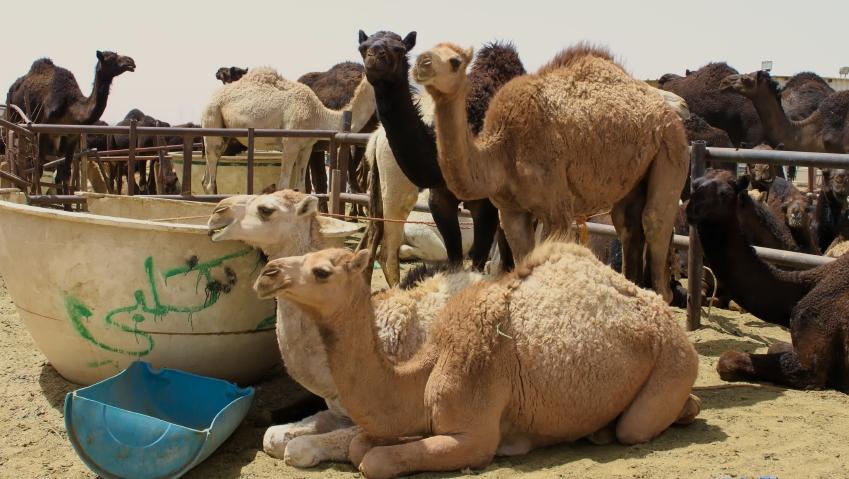Saudi Arabia reported five more MERS cases today, four of them in Riyadh, while a media report said the government is warning it will close clinics and hospitals that hide MERS cases or violate prevention guidelines.
In addition, the European Centre for Disease Prevention and Control said in an updated MERS-CoV (Middle East respiratory syndrome coronavirus) risk assessment that about a third of the recent cases in Saudi Arabia may be healthcare-related. The agency also likened the recent surge of cases to what happened in the country early in 2014.
Profile of new cases
Of the five new cases, all the patients are Saudis and have preexisting conditions, and none are healthcare workers, the Saudi Ministry of Health (MOH) said.
The four patients in Riyadh are all in critical condition. They are three men, ages 75, 83, and 80, and a 24-year-old woman. None of them have a history of exposure to animal or to MERS patients in the community, but possible exposure to other patients in healthcare settings is under investigation for three of them.
The fifth patient is a 35-year-old man in Hofuf who is in stable condition. He was exposed to MERS patients in a healthcare setting, the MOH said.
The five cases raise the total reported by the MOH in February to 67. The agency has also reported 24 MERS deaths this month. The MOH's cumulative MERS count has reached 912 cases, including 388 deaths and 26 active cases.
Reported threat of sanctions for hospitals
Meanwhile, a Saudi health official has warned that clinics and other health facilities that fail to report MERS-CoV cases will be shut down, according to a story today from Gulf News, based in Dubai, United Arab Emirates. The story cited a local daily newspaper named Al Eqtisadiya as its source.
Fines of up to 100,000 Saudi riyals will be imposed on facilities and health practitioners that conceal cases or do not take steps to prevent the spread of the disease, Abdul Aziz Bin Saeed, PhD, MBBS, the deputy minister of public health, was quoted as saying.
The story said the warning came after the government closed a large private hospital in Riyadh for failing to respond properly to the threat of MERS. The health ministry said the hospital, which was not named, failed to comply with infection control guidelines issued by the ministry's Command and Control Center.
A Riyadh health official said the violations had to do with sterilization and other precautions in the hospital's emergency department, intensive care units, and operating rooms, according to the story.
ECDC counts 1,042 cases
The ECDC, in its 14th and latest MERS-CoV risk assessment today, said 1,042 cases and 419 deaths had been reported in 23 countries as of Feb 20. The World Health Organization's official count of confirmed cases as of yesterday was slightly lower at 1,026, with at least 376 deaths.
The report says MERS cases in Saudi Arabia have been rising since December and this trend "parallels the increase observed in early 2014 and may be indicative of the start of a seasonal pattern."
It adds that most of the increase in recent weeks involves Riyadh and that a third of recent cases "may have a nosocomial origin." In addition, 12% of recent case-patients reported contact with an animal or animal product, which "is consistent with the transmission pattern observed in early 2014, which showed increased transmission from a primary animal source, most likely camels or camel products, amplified by nosocomial transmission."
The ECDC says that although the source of MERS-CoV and the mode of transmission still have not been confirmed, evidence for camels as a potential reservoir for the virus and for camel-to-human transmission "is accumulating."
The agency acknowledged that studies suggest that the virus does not spread easily from camels to humans. For example, a recent serologic study showed no evidence of infection in people who had close contact with infected camels.
The report adds, however, "This does not refute the hypothesis of infection from camels, but rather points at a low transmission rate, which is in line with the observed epidemiology of only a low proportion of exposed persons who actually become infected."
The ECDC said its judgment that MERS-CoV poses a low risk to Europe is unchanged, but international surveillance for the virus remains essential in view of the risk of importation of cases to Europe.
MERS-CoV guidance for clinicians
In other developments, the US Centers for Disease Control and Prevention (CDC) on Feb 20 published a MERS-CoV update for clinicians in Clinical Infectious Diseases.
The article summarizes information to help US clinicians prevent secondary cases of MERS in the United States. It notes that two MERS cases were identified in the country in May 2014, but no secondary cases occurred.
See also:
Feb 24 Saudi MOH statement
Feb 24 Gulf News story
Feb 23 ECDC risk assessment
Feb 23 WHO statement with case count
Feb 20 Clin Infect Dis article
Feb 23 CIDRAP News story "WHO notes stubborn MERS puzzles as Saudi cases climb"



















